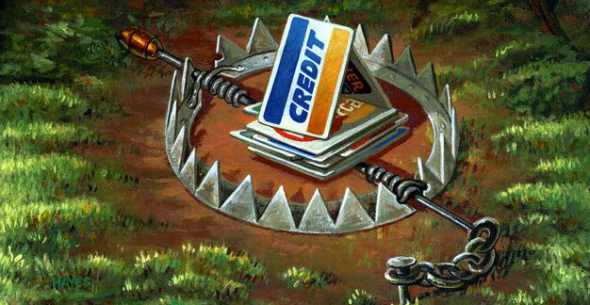
Understanding Consumer Proposals: Pros, Cons, and Insights for Achieving Financial Stability
April 18, 2024
DebtHelpers.ca – Strategies for Managing Credit Card Debt – A Guide to Achieving Financial Freedom
May 6, 2024Financial stress and mounting debt burdens have become increasingly common concerns for individuals worldwide. As debt challenges grow increasingly complex, it is crucial to understand the diverse range of solutions and support available to help navigate these difficult circumstances. One such solution is credit counselling, a service provided by certified professionals who assist and guide individuals in managing their debt, improving their financial habits, and achieving financial freedom.
Pursuing a path of financial empowerment and well-being requires not only dedication and commitment but also expert guidance and support at each step of the journey. By partnering with a trusted credit counsellor, individuals can begin to untangle their financial challenges and work towards lasting financial freedom.
The Benefits of Credit Counselling Services
Credit counselling services offer numerous advantages to individuals experiencing debt-related difficulties, including the following:
1. Financial Assessment and Budgeting: Credit counsellors provide a comprehensive assessment of an individual’s financial situation and offer tailored recommendations and strategies for budgeting and expense management.
2. Debt Consolidation Plans: Counsellors advise on potential debt consolidation options, helping to simplify and streamline debt repayment by combining multiple debts into one monthly payment.
3. Credit Score Improvement: Through guidance on responsible borrowing and debt repayment habits, credit counsellors assist individuals in rehabilitating their credit scores.
4. Debt Repayment Negotiation: In some cases, credit counsellors may negotiate with creditors on behalf of their clients, securing reduced interest rates, modified repayment plans, or even debt settlements.
Understanding the Credit Counselling Process
The credit counselling process can be broken down into several key stages:
1. Initial Consultation: The journey begins with an initial consultation, wherein the credit counsellor assesses the individual’s financial situation and identifies areas of concern and potential improvement.
2. Financial Planning: Based on the initial assessment, the counsellor works with the individual to develop a tailored financial plan, encompassing budgeting strategies, expense tracking, and debt repayment options.
3. Action Plan Implementation: The individual implements the prescribed financial plan under the guidance and supervision of the credit counsellor, monitoring progress and making adjustments as necessary.
4. Follow-Up and Ongoing Support: Credit counsellors maintain regular follow-up and communication to ensure continued progress and offer additional support or resources as needed.
Types of Debt Solutions Credit Counsellors Can Help With
Credit counsellors are well-versed in various debt relief options and can provide invaluable assistance in selecting the optimal solution for an individual’s financial situation:
1. Debt Consolidation Loans: These loans merge multiple debts into a single lower-interest loan, simplifying the repayment process and potentially reducing overall interest costs.
2. Debt Management Plans (DMPs): Designed for individuals experiencing unmanageable debt, DMPs involve the negotiation of more favourable repayment terms with creditors, enabling more manageable monthly payments and potential interest rate reductions.
3. Consumer Proposals: As an alternative to bankruptcy, consumer proposals involve a negotiated, legally binding agreement between a debtor and their creditors to repay a portion of outstanding debts over an extended period.
4. Bankruptcy: As a last resort, bankruptcy is a legal process wherein assets are liquidated, and the proceeds are distributed among creditors, ultimately discharging the individual from their debt obligations.
Choosing the Right Credit Counselling Agency
Selecting a reputable and experienced credit counselling agency is crucial for optimal outcomes. Key considerations when selecting a credit counselling service include the following:
1. Certification and Accreditation: Look for agencies with certified credit counsellors and industry accreditations, ensuring they adhere to high standards of practice and ethics.
2. Non-Profit Status: Non-profit credit counselling agencies typically prioritize the financial well-being of their clients and often offer lower fees or sliding-scale payment options.
3. Transparent Pricing: Reputable agencies will provide clear information about their fees and services in a transparent manner, with no hidden costs.
4. Consumer Reviews and Testimonials: Researching and comparing consumer feedback can provide valuable insights into the experiences of past clients and the overall efficacy of different credit counselling agencies.
Credit Counselling vs. Debt Settlement: Understanding the Differences
Credit counselling and debt settlement are two popular debt relief solutions that can help individuals manage their debts and improve their financial well-being. However, it is essential to understand the differences between these two options to determine which one is the right fit for a particular situation.
Credit counselling involves working with a certified credit counsellor who provides guidance and support to help individuals manage their debts and achieve financial stability. Credit counsellors offer a range of services, including financial assessment and budgeting, debt consolidation plans, credit score improvement, and debt repayment negotiation.
On the other hand, debt settlement involves negotiating with creditors to settle debts for less than what is owed. Debt settlement companies work on behalf of individuals to negotiate with creditors and reach a settlement agreement that involves paying a lump sum amount, which is typically less than the total amount owed.
While both credit counselling and debt settlement can provide debt relief, there are significant differences between the two options. For example, credit counselling focuses on developing a personalized plan to manage debts and improve financial habits, while debt settlement aims to reduce the total amount owed and settle debts for less than what is owed.
Additionally, credit counselling is typically more affordable than debt settlement, as credit counselling agencies are often non-profit and may offer lower fees or sliding-scale payment options. Debt settlement companies, on the other hand, often charge high fees, which can add up quickly and make it difficult to repay debts.
Conclusion
Credit counselling services offer a valuable resource for individuals seeking guidance and support in managing their debt and achieving financial stability. By understanding the benefits, processes, and outcomes of credit counselling, individuals can assess whether this solution aligns with their unique financial circumstances and goals. By partnering with a reputable credit counselling agency, individuals can embark on a personalized path toward financial freedom and well-being.
Connect with Debt Helpers, the leading debt consultants in Canada, to explore the advantages of credit counselling services. Take the first step towards improving your financial stability with a customized plan by consulting with a team of dedicated professionals.
